1 Exponential Growth of Computational PowerMoore’s Law and emerging quantum computing platforms are rapidly closing the gap between brain-level and machine-l


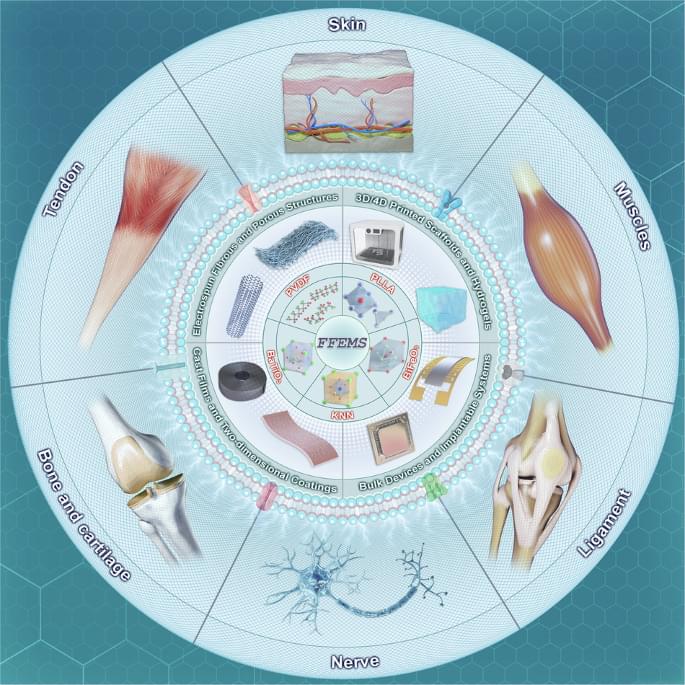
npj Flexible Electronics, Article number: (2026) Cite this article
We are providing an unedited version of this manuscript to give early access to its findings. Before final publication, the manuscript will undergo further editing. Please note there may be errors present which affect the content, and all legal disclaimers apply.
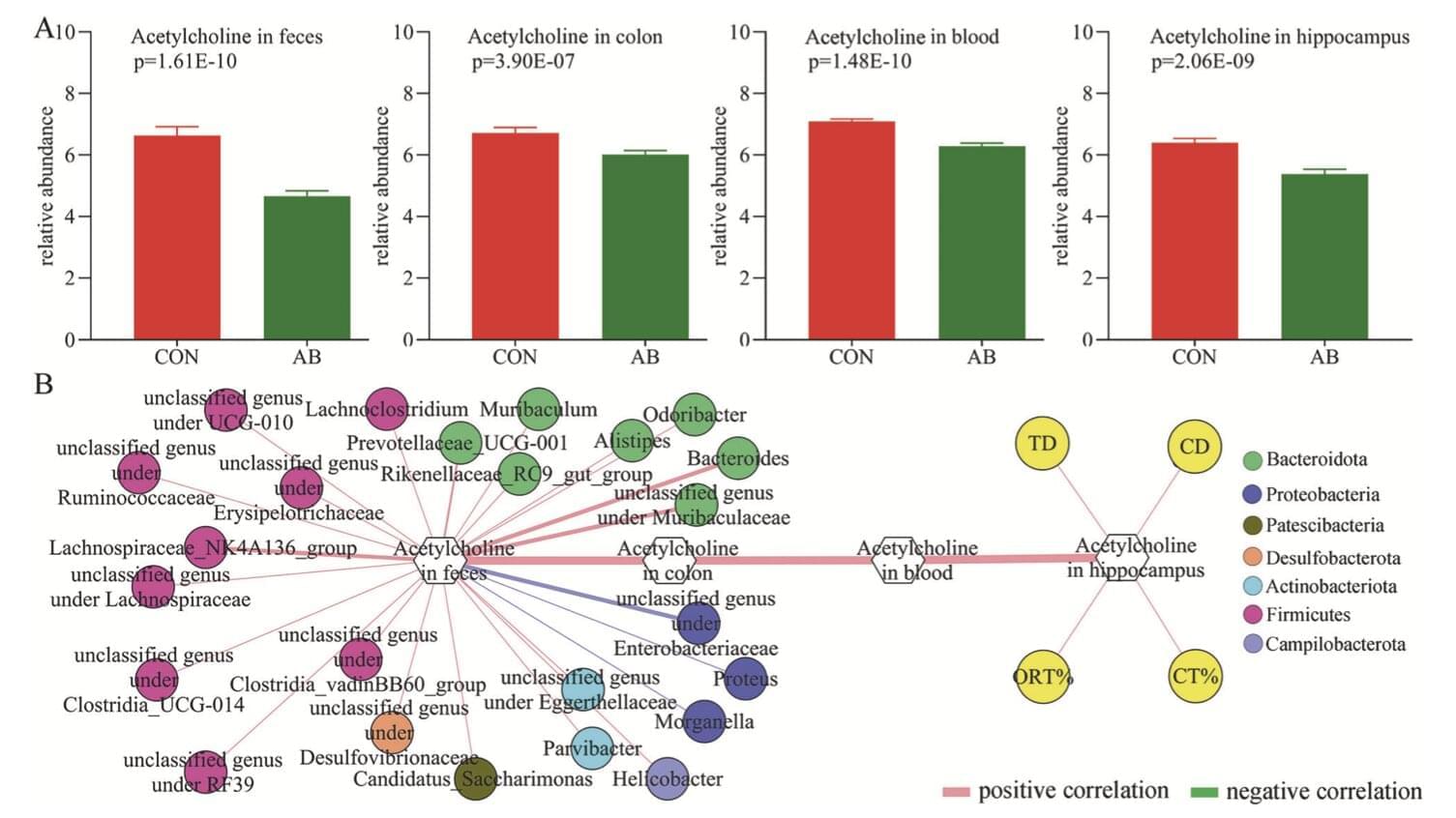
Antibiotics (ABs) are among the most used pharmaceutical drugs worldwide, as they are currently the most effective medicines for the treatment of bacterial infections. An excessive use of these drugs, however, can damage the gut microbiota, the population of microorganisms living in the intestines that help us to digest food.
Bacteria and other microorganisms in the gut are known to also communicate with the brain via a communication pathway that is referred to as the gut-brain axis. Recent research suggests that some gut bacteria help to reduce inflammation and support the healthy functioning of the brain.
Researchers at the First Affiliated Hospital of Chongqing Medical University have carried out a study exploring the possibility that the effects of ABs on gut bacteria could also facilitate the development of mental health disorders, particularly increasing anxiety. Their findings, published in Molecular Psychiatry, suggest that ABs do in fact damage gut bacteria that help regulate mood, linking their excessive use with higher levels of anxiety.
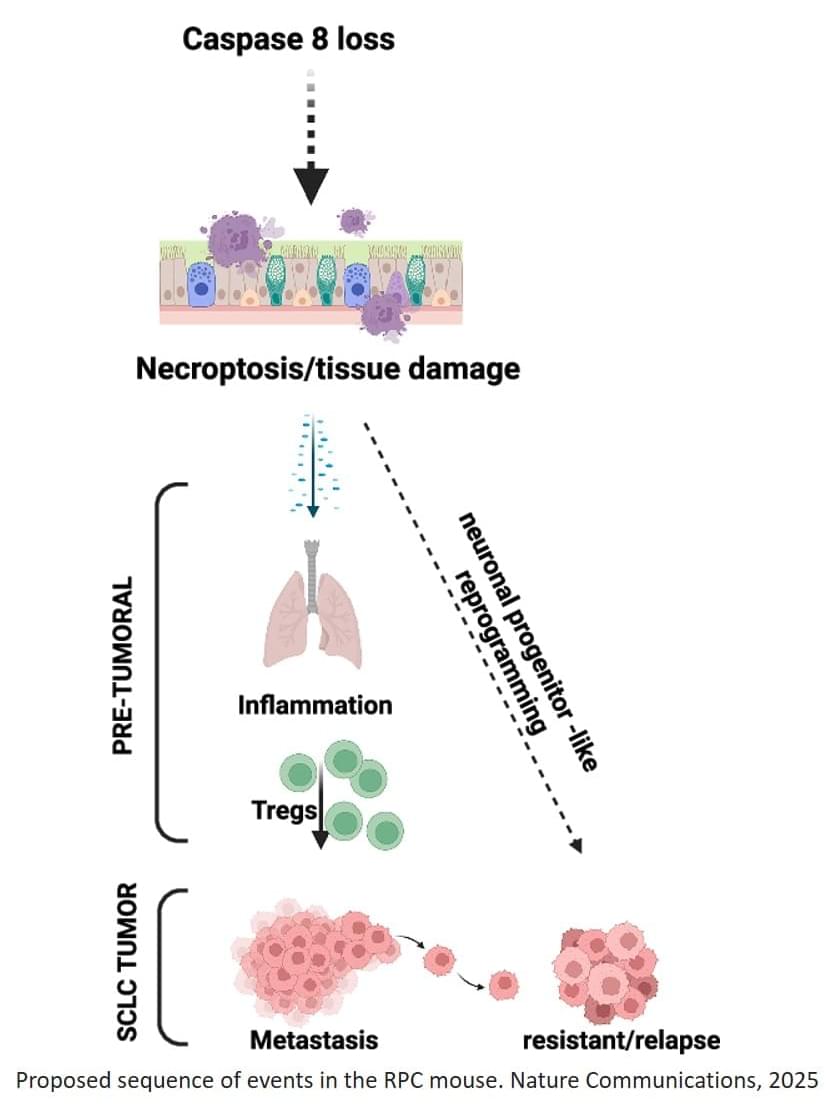
Unlike other epithelial cancers, small cell lung cancer (SCLC) shares features with neuronal cells, including lack of caspase-8 expression, a protein involved in programmed, non-inflammatory cell-death (apoptosis), a mechanism that is essential to eliminate faulty or mutated cells and to maintain health.
To better mimic the features of human SCLC, the team generated and characterized a novel genetically engineered mouse model lacking caspase-8. Using this new model, the team observed that when this protein is missing, an unusual chain reaction sets off.
“The absence of caspase-8 leads to a type of inflammatory cell death called necroptosis that creates a hostile, inflamed environment even before tumors fully form” explains the senior author. “We were also intrigued to find that pre-tumoral necroptosis can in fact promote cancer by conditioning the immune system,” the author continues.
The inflammation creates an environment where the body’s anti-cancer immune response is suppressed, preventing immune cells from attacking threats like cancer cells. This, in turn, can promote tumor metastasis. Surprisingly, the researchers observed that this inflammation also pushes the cancer cells to behave more like immature neuron-like cells, a state that makes them better at spreading and that is associated with relapse.
While it remains unknown whether similar pre-tumoral inflammation also occurs in human patients, this work identifies a mechanism contributing to the aggressiveness and patient relapse in SCLC that could be exploited as a way to improve the efficiency of future therapies and early-stage diagnostic methods. ScienceMission sciencenewshighlights.
Small cell lung cancer (SCLC) is one of the most aggressive forms of lung cancer, with a five-year survival rate of only five percent. Despite this poor prognosis, SCLC is initially highly responsive to chemotherapy. However, patients typically relapse and experience very rapid disease progression. Current research into the biological mechanisms behind SCLC remains essential in order to prolong treatment responses, overcome relapse and, ultimately, improve long-term patient outcomes.
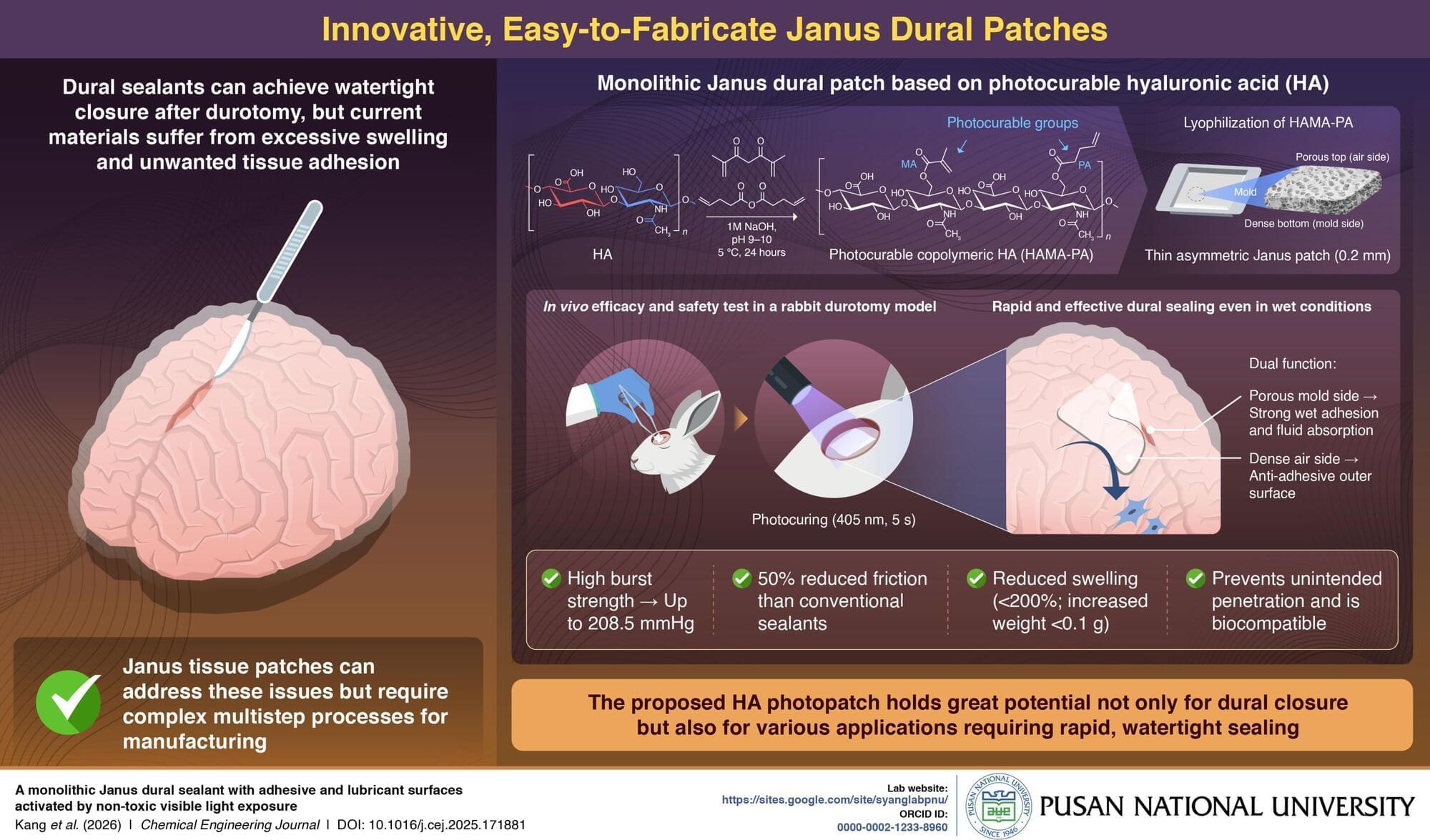
Durotomy is a common neurosurgical complication involving a tear in the dura mater, the protective membrane surrounding the brain and spinal cord. Damage can cause cerebrospinal fluid (CSF) leakage, leading to delayed healing, headaches, and infection, making a reliable watertight dural closure essential.
Tissue adhesives are increasingly being explored as alternatives to suturing for dural closure because they offer simpler and faster application. However, many existing glue-based sealants suffer from excessive swelling, leading to mass effect and unwanted tissue adhesion, which can lead to postoperative complications.
To address these limitations, researchers have investigated Janus tissue patches, which feature two distinct surfaces—one that adheres strongly to tissue and another that prevents unwanted adhesion. Unfortunately, most existing Janus patches rely on multiple materials and complex, multi-step fabrication processes, limiting their practical use.

Hematopoietic aging extends far beyond the confines of the bone marrow, functioning as a central regulator of systemic decline through its influence on inflammation, immune dysregulation, and inter-organ communication. Moreover, reciprocal signaling from peripheral organs, such as the brain and gut, further shapes hematopoietic aging, highlighting the bidirectional nature of these interactions (Figure 3).
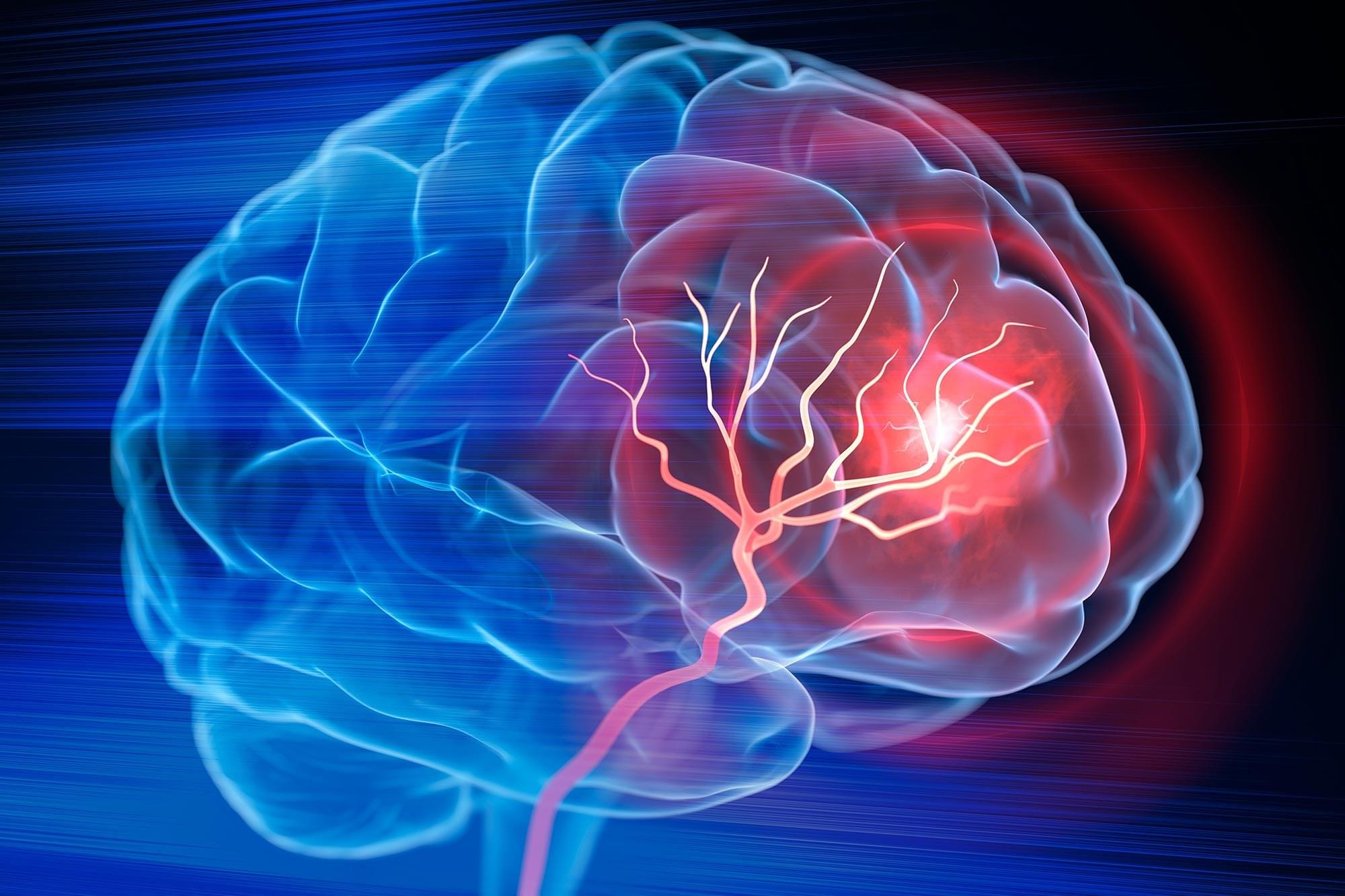

The potential use of psychedelics in the treatment of various mental health conditions has made these drugs a hot area of scientific research, as well as growing public interest. A variant of ketamine called esketamine is already FDA approved and utilized for treatment-resistant depression, and the FDA has designated formulations of psilocybin and MDMA for the treatment of depression and PTSD, respectively, as “breakthrough therapies,” a process designed to expedite their development and review. NIDA is actively funding research on these compounds—NIDA and the National Institute on Mental Health are the largest funders of psychedelic research at NIH—as they represent a potential paradigm shift in the way we address substance use disorders too. Yet there is much we still do not know about these drugs, the way they work, and how to administer them, and there is danger of the hype getting out ahead of the science.
The promise of psychedelic compounds likely centers on their ability to promote rapid neural rewiring.1 Recent preclinical studies have suggested that the “neuroplastogen” properties of psilocybin, for example, may have to do with its ability to bind to 5HT2A (serotonin) receptors inside neurons, something that serotonin itself cannot do.2 That rewiring may explain these compounds’ relatively long-lasting effects, even with just one or a few administrations. Some trials have found effects lasting weeks3, but smaller studies (and anecdotes) are suggestive of much longer durations. What is needed is sound scientific research including clinical trials that can substantiate therapeutic efficacy, duration, and safety in large numbers of participants.
As part of a research study, psychedelics are administered by clinicians within highly controlled settings. This is important not only for safety reasons but because contextual factors and expectations play a crucial role in their effectiveness.4 Whether a patient has a positive or negative experience depends to a significant extent upon their mindset going into the experience and whether the setting is one in which they feel secure. This raises an important question—the extent (if any) to which the clinician’s time and attention and/or therapeutic approach play a role in psychedelics’ therapeutic efficacy—where much more research is needed. The extent to which psychotherapy is necessary in conjunction with psychedelics and which methods work best is an open question.
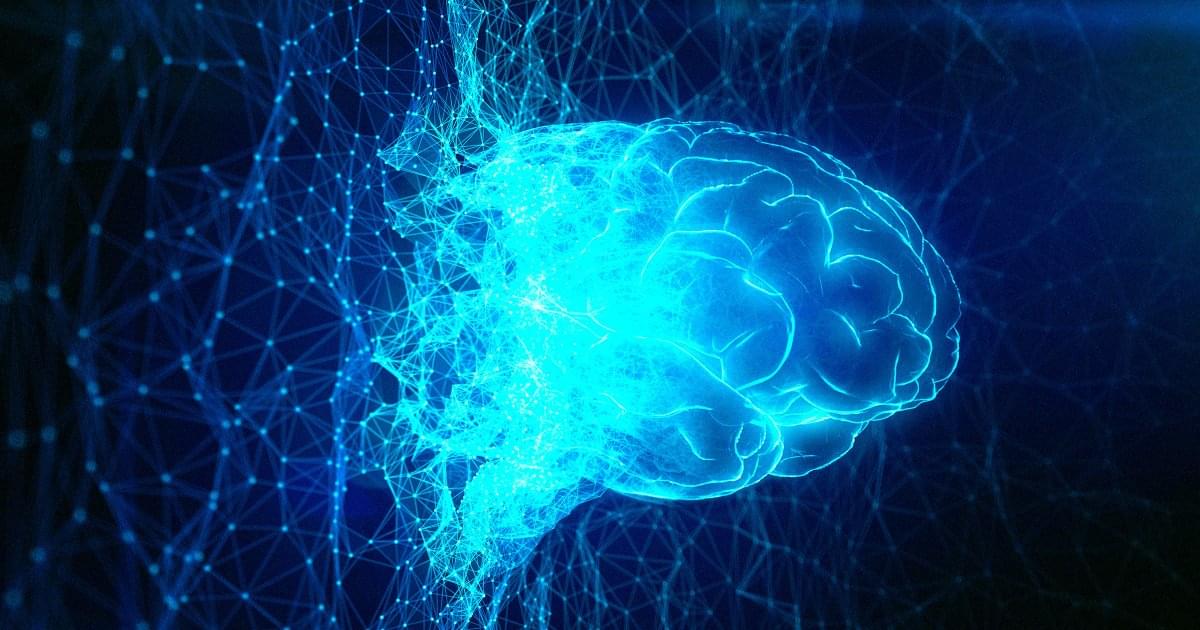
Despite its diminutive size, the organ packs almost 500 feet of wiring and 54.5 million synapses into the size of a grain of sand — an astonishing feat of computational neurology research that allows scientists to better understand how signals travel throughout the brain.
And thanks to significant advances of some of the world’s most capable supercomputers, researchers at the Jülich Research Centre in Germany are now aiming their sights at a far more ambitious goal: a simulation at the scale of the entire human brain.
Previous attempts, dating back a decade, like the Human Brain Project, fell largely flat, despite considerable government funding. But as New Scientist reports, the Jülich researchers think they can push things forward. The idea is to bring together several models of smaller regions of the brain with a supercomputer to run simulations of billions of firing neurons.
